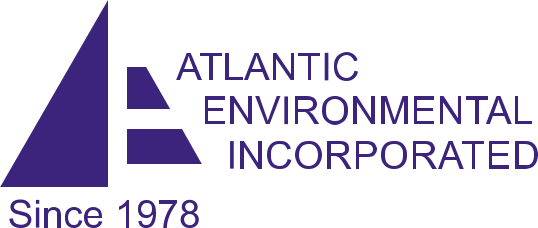Contractors, insurance carriers, property owners who may need assistance in dealing with hurricane damage as discussed in this article, call us at 973-366-4660 or e-mail us at info@atlenv.com for details and a free estimate.
Written By: Robert E. Sheriff, MS, CIH, CSP, President
February 4, 2020
Hurricane Damage – Mold, Bacteria, Insects and More
In the aftermath of a hurricane season, there are many hazards to humans other than just mold.
Mold
Certainly, mold is the most obvious. Storm surge, torrential rains, power outages, and hot humid summer/fall days all serve to create a vast mold incubation condition.
Bacteria
Bacteria are also of major concern for many of the same reasons. The longer the power is out the greater the potential for sewage to spread bacteria. Also, spoiled foods in homes, food processors, storage warehouses all have the potential to multiply the bacteria that can get into floodwaters and create exposure conditions as we clean out homes, factories, warehouses, stores.
Clean-up of water ravaged locations can pose equal damages to those providing the tedious tasks of removing water-soaked clothing, furniture, fixtures, spoiled foodstuffs, sheetrock. Both mold and bacteria present exposure risk to clean-up workers.
Although body, face, and respiratory protection may be necessary, they can present a heat stress condition resulting in heat exhaustion and deadly heatstroke. Work schedules must consider these factors and provide drinking water, increased break regimen, plans for medical attention if necessary, as well as sprains, strains, cuts, and bruises—all of which are likely when dealing with hurricane aftermath conditions.
Remember also that clean-up work can expose workers to the tetanus bacteria from rusted surfaces. Receiving tetanus shots or ensure such shots are up-to-date is critical.
Insects
Finally, insect bites (mosquitoes, flies, spiders) are much more likely after a hurricane and flood. Insect repellants and personnel hygiene during and after clean-up work will serve to prevent the devastation from leading to infection and illness. AND don’t forget SNAKES. Flooded wetlands and rivers, force all forms of vermin out of their habitat and into residential communities.
Professional health, safety, and environmental specialists are available to define hazards, risk assessment, remediation plans, personal protection, and final inspections to assist as life attempts to get back to normal.
For more information contact Atlantic Environmental.
Our primary service areas are New Jersey NJ, New York NY, (New York City), Pennsylvania PA, Connecticut CT, Delaware DE, Massachusetts, (Boston) MA, Rhode Island RI, Washington DC, Wisconsin WI, Maryland MD, Michigan MI, Illinois (Chicago) IL, Virginia VA, Indiana IN, Georgia (Atlanta) GA, Alabama AL, North Carolina NC, South Carolina SC, Tennessee TN, Texas (Dallas, Ft Worth) TX, Oklahoma OK, DC, Arkansas AR, Florida FL. We can service most other areas of the U.S. but with some added travel charges.



